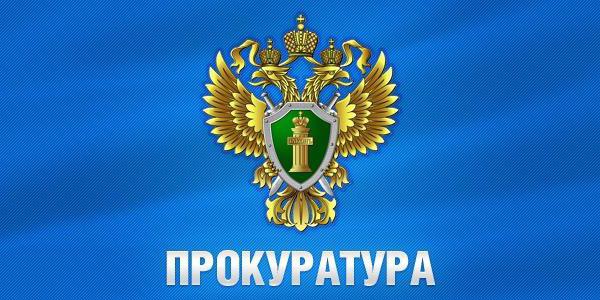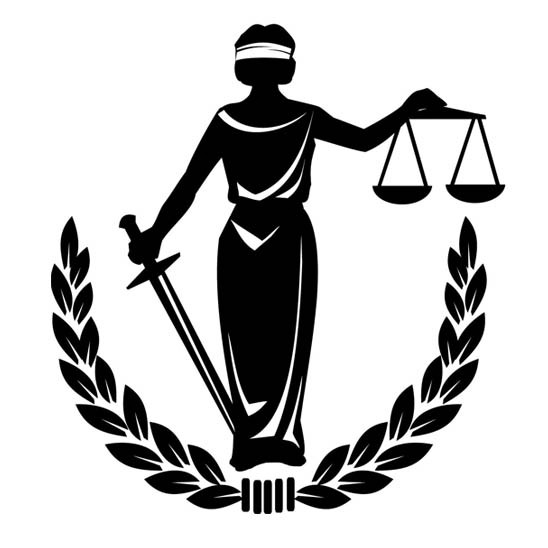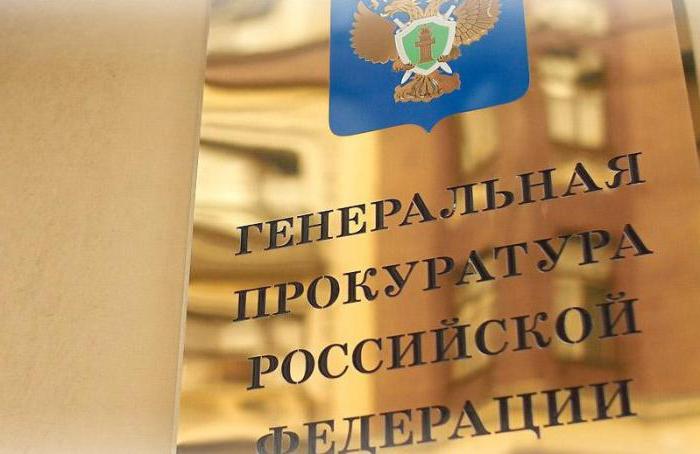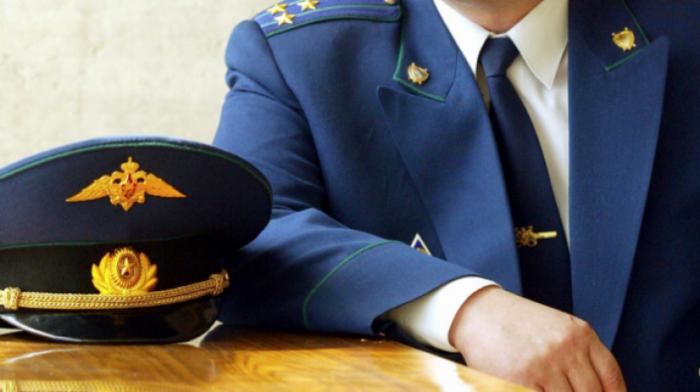Like other organizations of a supervisory nature, the Prosecutor's Office of the Russian Federation has the right to carry out both scheduled and unscheduled inspections. How will the verification be carried out if the prosecutor’s office arrives? Organization audit plan for 2017, what does it include? Which institutions are usually audited? Answers to these and other equally important questions can be found in the process of reading this article.
General Provisions

What does the prosecutor's office check in the organization? Until today, certain regulatory acts have been adopted by state authorities, which to this day regulate the procedure of various kinds of inspections. It should be noted that their number includes regulatory acts that apply to all legal entities. A striking example of this provision is the Federal Law on the Protection of the Rights of Individual Entrepreneurs and Legal Entities. By the way, this aggregate also includes special acts, for example, the Federal Law “On associations of a public type” or the Federal legislative act “On organizations of a non-commercial type”.
What is the difference in the verification of the organization by the prosecutor's office? The key distinguishing feature of this type of inspection is the absolute absence of clear regulation on the part of the legal (legal) category. How is this to be understood? The following items would be appropriate here:
- What is the schedule?
- Verification of the prosecutor's office of organizations is carried out by which official?
- What documentation should be presented when checking the prosecutor's office?
- What is the subject of verification?
- How often can the prosecutor's office check the organization? Dates of the event itself.
- What is the procedure for reviewing materials?
No one can give clear answers to these questions today. It is important to note that the Russian Constitutional Court has already paid close attention to the lack of strict regulation of the type of checks under consideration by the category of law. So, the following opinion was expressed: “To date, neither the verification procedure, nor the time frame, nor the procedure for checking the organization by the prosecutor’s office are enshrined in law.” More than ten years have passed since the decision of the Russian Constitutional Court was passed, but nothing has changed.
It is in accordance with the reason given that there is nothing left but to give recommendations to non-profit organizations in the process of protecting their rights to be guided by the provisions of the Russian Federal Law "On the Prosecutor's Office of the Russian Federation", which are general in nature, as well as clarifications from the Russian Constitutional Court and acts of the General Prosecutor's Office being regulatory.
Prosecutorial check and its features
What is a prosecutor’s check and what does the prosecutor’s office check in an organization? Under the prosecutor’s audit should be understood verification of the implementation of legislative acts by state bodies, their officials, organizations of a commercial and non-commercial type. It is important to add that the event under consideration is carried out through the prosecution authorities.
How serious can the grounds for verification be by prosecutors? As a rule, the key one is information on the facts of violation of laws and other legislative acts, which in one way or another require the adoption of certain measures by the prosecutor. So, the reason for the implementation of the verification activities may be media reports, direct appeals of citizens, as well as materials from criminal, civil and administrative cases.
The powers of the prosecutor and the subject of verification

A prosecutor may act exclusively within his authority.The subject of this type of event is what the prosecutor's office checks in the organization, and for how long. By law, the jurisdiction of the prosecutor’s office includes everything that is not included in the competence of controlling organizations for special purposes. Judging by this provision regarding non-profit organizations, it can be concluded that the prosecutor’s office is not vested with any right to verify all those issues that are within the competence of the Ministry of Justice of the Russian Federation, state tax and tax authorities, and so on.
Suppose, if the prosecutor’s office checked religious and educational organizations, this means that verification of the charter’s compliance with current legislation, reporting to the state tax and justice authorities, and so on was excluded. Then, when a complaint (message) was received by the prosecutor's office regarding violations committed by a particular nonprofit organization in a certain field of activity, where another state body is engaged in the exercise of control functions, the first one or another undertakes to transfer the complaint (message) to the second in accordance with the jurisdiction .
As an example of a possible check in a non-profit type organization on the part of the prosecutor's office, one can consider a violation in relation to the Federal Legislative Act “On Countering Extremist Activities”. An inspection of the prosecutor's office of religious organizations or other non-profit structures can be carried out because this regulatory act in one way or another provides for the powers of the prosecutor related to the control of associations of a public orientation.
It is important to note that in the situation with the prosecutor’s audit, the audited period is not established by law, however, in any case, it is necessary to be guided by the principle of justice and reasonableness. What does the prosecutor's office check in the organization? You need to know that almost all the powers of the prosecutor are listed in the first part of article twenty-two of the Russian Federal Law "On the Prosecutor's Office." Among them, the following points should be noted:
- Unobstructed entry into the premises and, of course, into the territory of the inspected structures after the presentation of an official certificate.
- Providing access to documentation and information of audited organizations.
- The opportunity to get acquainted with the necessary documentation, materials, statistical and other information.
- The possibility of obtaining explanations from the specialists of the audited organization on issues arising during the event.
- The ability to call citizens and officials for explanations in terms of violations of the law.
As it turned out, the verification of the organization by the prosecutor's office is very multifaceted. In addition to all of the above, you can add a few more touches, discussed in the next chapter.
Additional nuances

Let's say the prosecutor’s office checked religious and educational organizations. This implies that in the process of implementing the event, prosecutors were guided exclusively by the procedure determined by law for such situations, on issues that are somehow affected by the activation of laws on tax, banking and other secrets.
It is important to note that in the process of conducting verification activities of both a planned and unscheduled nature, it is advisable to exclude cases of demanding extra information, documents and materials that prosecutors can receive directly during the verification process upon entering the place.It must be added that the verification by the prosecutor's office of a medical organization or other institution does not in any way allow facts related to the assignment to structures and their officials of the obligation to provide the prosecution authorities with information that does not in any way relate to the subject of verification or goes beyond any scope. By the way, this also includes requests for the provision of statistical reporting not provided by law.
The main nuances of the relevant topic in the article are fully considered. Only two questions remain that are not resolved. These include the timing of the documentation, as well as the form and procedure for requesting individual securities. It is important to note that in this case, the rule is general. One way or another, it applies to all the requirements and rules of state representatives. So, the time limits for checking by the prosecutor's office of educational organizations and other institutions should be absolutely reasonable, and the requirements should be clear and clear.
By the way, the announcement of the requirements is allowed today in oral form, which makes the general procedure much more convenient. The final nuance of this chapter is that both the deputies and the assistants directly to the prosecutor can act as prosecutors who are vested with the right to conduct inspections and exercise the powers granted to them.
Deadlines for the verification of the prosecutor's office
How often can the prosecutor's office check the organization? It is important to note that the timing of the verification exercise by the Federal Law "On the Prosecutor's Office" is not set. By the way, the attention of the Constitutional Court was also not drawn to this fact. Nevertheless, the necessary timelines are clearly defined by the Russian Federal Law “Concerning the Procedure for Considering Civil Appeals,” as well as the Instruction on the Procedure for Considering Appeals and Further Admission of Citizens in the System of the Russian Prosecutor's Office. It should be added that the provision submitted was approved by order of the Prosecutor General of 12/17/2007.
As it turned out above, the basis for checking the prosecutor's office of educational organizations for 2017 can be a regular message (complaint) about the violations that are usually received from citizens, the media, officials and so on. Such appeals, in accordance with the general rule (however, today there are a number of exceptions), must be checked by the prosecutor's office within thirty days. It should be added that in case of urgent need, the established period must be extended for another thirty days. This means that the deadline for checking non-profit organizations by the prosecutor’s office is nothing more than set aside by the Federal Law to consider an appeal from an official or citizen related to facts of violation of laws that apply to non-profit organizations in one way or another.
Familiarization with information

After the application has been submitted to the prosecutor's office (verification of an organization, for example, of an educational type), the event itself is carried out directly. So how do you get acquainted with relevant materials after the event? Briefly and very clearly, the relevant provision is described in the Order of the General Prosecutor's Office dated 07.12.2007. The following quote is presented there: “Prosecutorial supervision must be carried out in a public manner.” It must be added that publicity in this case involves openness.
It should be noted that part two of Article 5 of the Federal Legislative Act “On the Prosecutor's Office” previously allowed the prosecutor’s office to refuse to familiarize themselves with the materials of the audit, however, the Decree of the Russian Constitutional Court of February 18, 2000 recognized its inconsistency with the Russian Constitution.Why? To the extent that, in accordance with the meaning given to it by law enforcement practice, one way or another, it leads to a refusal by the prosecution authorities to provide the citizen or official with the necessary materials for familiarization that directly affect his freedoms and rights. In other words, individual citizens, as well as their associations, which include non-profit organizations, are vested with the absolute right to familiarize themselves with audit materials. It should be added that the exception in this case is documentation with a special status (for example, state secret).
The results of the verification by the prosecutor's office

It is important to note that during the prosecutor's check, violations in the activities of structures may not be revealed at all. However, in circumstances involving the identification of certain violations, the prosecutor is vested with the following rights:
- Making a submission with a request to eliminate the violation on the part of the organization’s employees.
- A warning about the inadmissibility of a certain type of offense.
- Appeal to the judicial authorities with a lawsuit regarding the liquidation of an organization (company, association). In the case of violation of anti-extremist laws, as a rule, the activities of the association are also suspended through going to court.
Then, when the prosecutor has revealed other violations during the verification process that are in no way related to the grounds for initiating the verification exercise, and they contain signs of a crime or administrative offense, the inspector must act within the framework of the relevant code. Then, when such violations fall within the competence of other bodies, for example, the state tax service, one way or another the prosecutor undertakes to transfer relevant information to where necessary. Violations should in no way be ignored. As noted above, in this case, the prosecutor should also consider his deputy. The assistants are only entitled to issue a ruling on the initiation of a case involving an administrative offense.
Useful Tips

The prosecutor's office sets up inspections of organizations for 2017 quite often. That is why it is always necessary to be alert. Of course, giving advice in relation to absolutely all life situations is impossible. There are people who do not accept any violations by officials. One way or another, they are ready to "fight to the death." And there are those who are in any case ready to "turn even the second cheek." Therefore, it will be advisable to offer several options in accordance with any preferences.
So, the prosecutor or his assistant comes into the office. One way or another, he undertakes to provide a certificate, as well as to explain in detail the essence and subject of verification. The first thing to do in such a situation is to contact a lawyer or lawyer and invite him to participate in the verification procedure. Secondly, in addition to the certificate and the subject of verification, it is necessary to ask for the presentation of written paper, which is a confirmation of the audit. It may be a complaint, an order directly from the prosecutor, and so on. In case of refusal, this paper should be requested in writing, referring to the decision of the Constitutional Court referred to above. In addition, it is necessary to provide audio and video recording of the process in the office.
Actual documentation during verification
It should be noted that in the process of conducting an audit, the prosecutor is vested with the absolute right to demand the presentation of documentation to him in accordance with the announced subject of the audit. Then, when he asks for papers that are not related to the essence of the event or directly to its competence, it is necessary to go one of the following ways:
- Provide this documentation, and then appeal the relevant actions to a court or a higher prosecutor.
- Refuse to provide papers, and after a case has been initiated regarding an administrative offense (that is, non-fulfillment of legal requirements by the prosecutor), prove the illegality of the submitted claims.
- Forcibly do not interfere with the provision of documentation to the prosecutor, as this may lead to the initiation of a criminal case.

Then, when the inspector expresses a desire to analyze the documentation “for three years”, one of the following provisions should be guided:
- Provide this documentation, and then think about the need to appeal this requirement to the judiciary.
- Deny the request and require specification of the list of requested securities. It is important to note that the requirements of the representative of state authority in one way or another should be feasible and understandable. Here you can make a refusal with the obligatory indication of the reasons in writing, and then forward it to the prosecutor’s office, explaining that, according to the concretization of the list, the necessary papers will be provided without fail.
Employee survey
If the prosecutor wants to interview all employees of the association, you should be guided by the following tips:
- Wanting is not harmful at all, but nobody canceled article fifty-first of the Constitution: “No one is obligated to testify against himself, his own spouse and close people.”
- Ask for an explanation.
- Consult a lawyer.